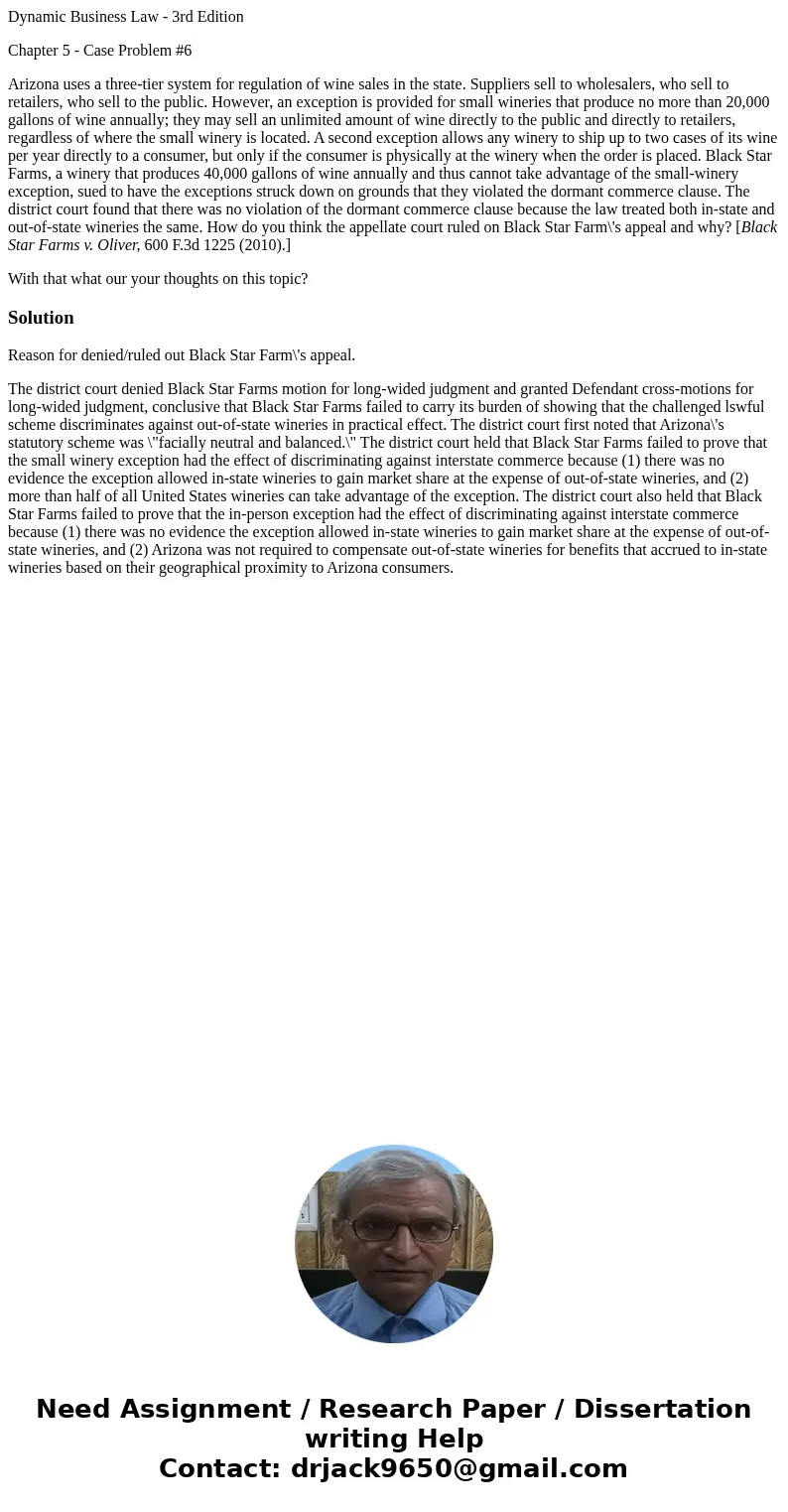Dynamic Business Law 3rd Edition Chapter 5 Case Problem 6
Dynamic Business Law - 3rd Edition
Chapter 5 - Case Problem #6
Arizona uses a three-tier system for regulation of wine sales in the state. Suppliers sell to wholesalers, who sell to retailers, who sell to the public. However, an exception is provided for small wineries that produce no more than 20,000 gallons of wine annually; they may sell an unlimited amount of wine directly to the public and directly to retailers, regardless of where the small winery is located. A second exception allows any winery to ship up to two cases of its wine per year directly to a consumer, but only if the consumer is physically at the winery when the order is placed. Black Star Farms, a winery that produces 40,000 gallons of wine annually and thus cannot take advantage of the small-winery exception, sued to have the exceptions struck down on grounds that they violated the dormant commerce clause. The district court found that there was no violation of the dormant commerce clause because the law treated both in-state and out-of-state wineries the same. How do you think the appellate court ruled on Black Star Farm\'s appeal and why? [Black Star Farms v. Oliver, 600 F.3d 1225 (2010).]
With that what our your thoughts on this topic?
Solution
Reason for denied/ruled out Black Star Farm\'s appeal.
The district court denied Black Star Farms motion for long-wided judgment and granted Defendant cross-motions for long-wided judgment, conclusive that Black Star Farms failed to carry its burden of showing that the challenged lswful scheme discriminates against out-of-state wineries in practical effect. The district court first noted that Arizona\'s statutory scheme was \"facially neutral and balanced.\" The district court held that Black Star Farms failed to prove that the small winery exception had the effect of discriminating against interstate commerce because (1) there was no evidence the exception allowed in-state wineries to gain market share at the expense of out-of-state wineries, and (2) more than half of all United States wineries can take advantage of the exception. The district court also held that Black Star Farms failed to prove that the in-person exception had the effect of discriminating against interstate commerce because (1) there was no evidence the exception allowed in-state wineries to gain market share at the expense of out-of-state wineries, and (2) Arizona was not required to compensate out-of-state wineries for benefits that accrued to in-state wineries based on their geographical proximity to Arizona consumers.

 Homework Sourse
Homework Sourse